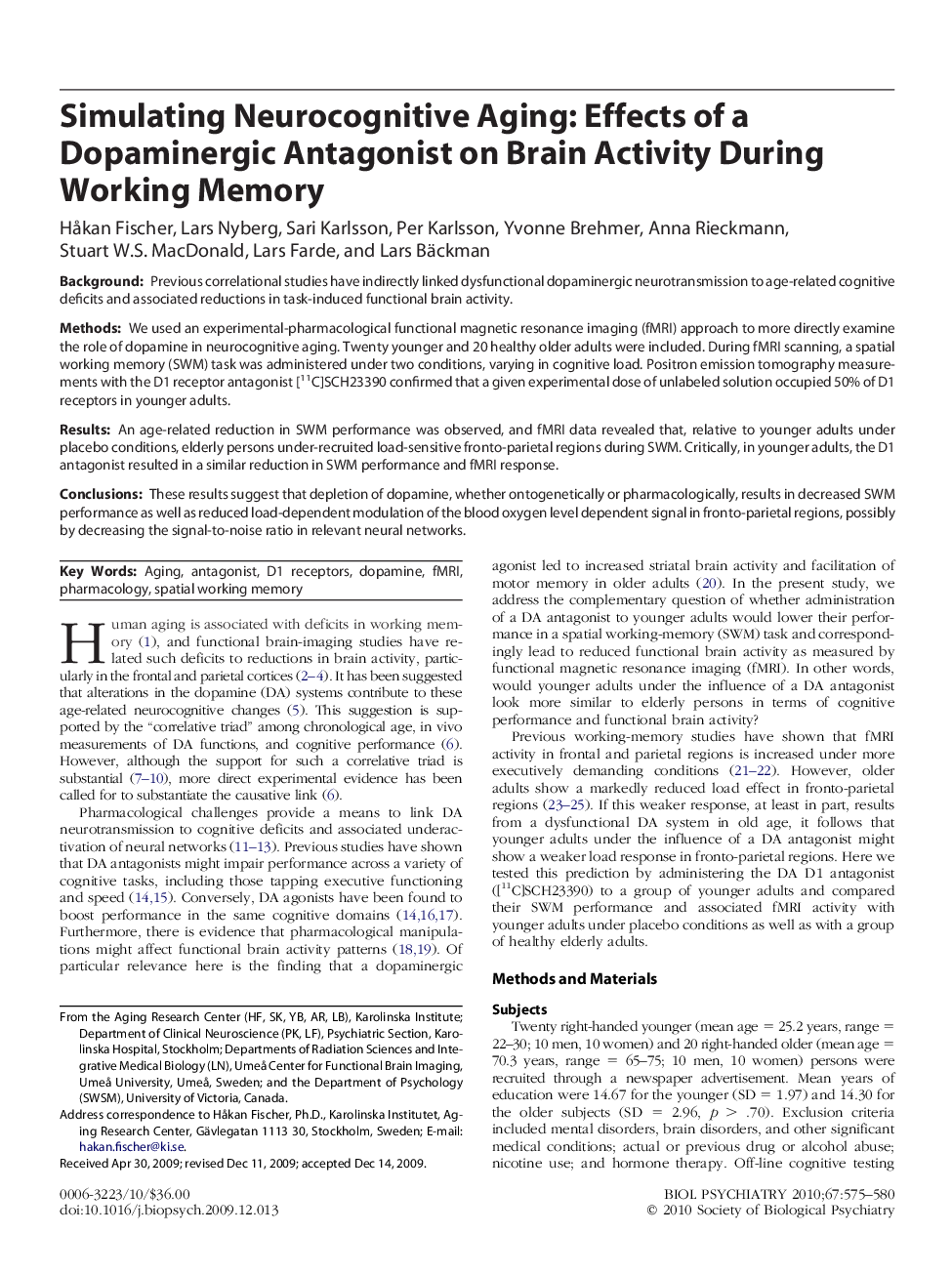| Article ID | Journal | Published Year | Pages | File Type |
|---|---|---|---|---|
| 4179261 | Biological Psychiatry | 2010 | 6 Pages |
BackgroundPrevious correlational studies have indirectly linked dysfunctional dopaminergic neurotransmission to age-related cognitive deficits and associated reductions in task-induced functional brain activity.MethodsWe used an experimental-pharmacological functional magnetic resonance imaging (fMRI) approach to more directly examine the role of dopamine in neurocognitive aging. Twenty younger and 20 healthy older adults were included. During fMRI scanning, a spatial working memory (SWM) task was administered under two conditions, varying in cognitive load. Positron emission tomography measurements with the D1 receptor antagonist [11C]SCH23390 confirmed that a given experimental dose of unlabeled solution occupied 50% of D1 receptors in younger adults.ResultsAn age-related reduction in SWM performance was observed, and fMRI data revealed that, relative to younger adults under placebo conditions, elderly persons under-recruited load-sensitive fronto-parietal regions during SWM. Critically, in younger adults, the D1 antagonist resulted in a similar reduction in SWM performance and fMRI response.ConclusionsThese results suggest that depletion of dopamine, whether ontogenetically or pharmacologically, results in decreased SWM performance as well as reduced load-dependent modulation of the blood oxygen level dependent signal in fronto-parietal regions, possibly by decreasing the signal-to-noise ratio in relevant neural networks.
